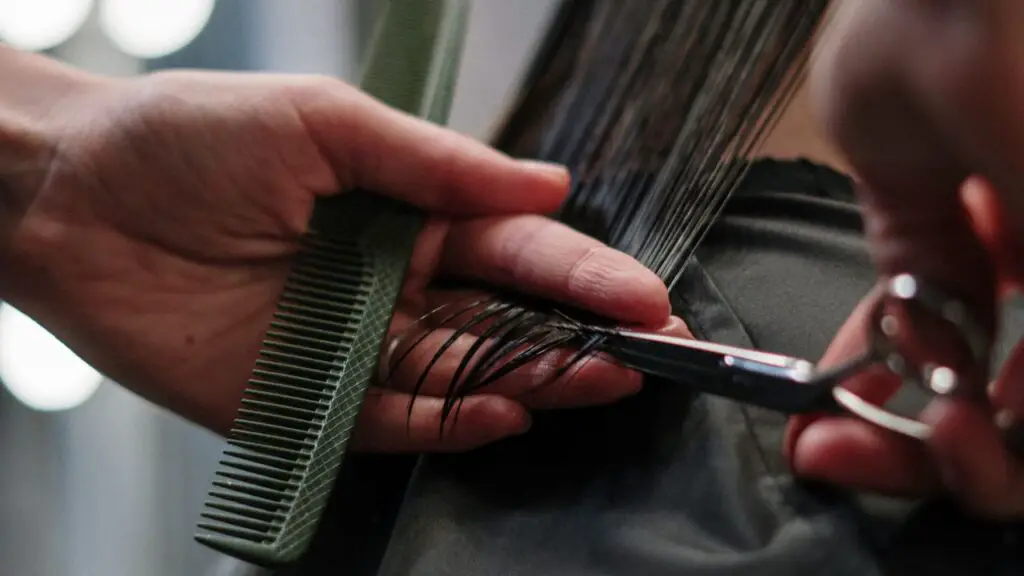Can Woman Cut her Hair in Islam?
Navigating Hair Cutting Practices for Muslim Women: A Blend of Faith and Modernity

Can Woman Cut her Hair in Islam?

Introduction
Islam is a religion that encompasses a wide range of teachings and principles that guide the lives of its followers. One topic that often arises in discussions is whether women can cut their hair in Islam. This question is rooted in various interpretations of Islamic texts, cultural traditions, and evolving societal norms. To understand the stance on women cutting their hair in Islam, it’s important to delve into the Quran, Hadiths (sayings and actions of the Prophet Muhammad), and scholarly opinions that shape this issue.
The Quranic Perspective
The Quran, the holy book of Islam, is the primary source of guidance for Muslims. While it does not explicitly address the topic of women cutting their hair, there are verses that emphasize modesty and adornment. In Surah An-Nur (24:31), Muslim women are instructed to “draw their veils over their bosoms and not reveal their adornment except to their husbands.” This verse primarily focuses on concealing the outward adornment and beautification, which could potentially be interpreted as discouraging the alteration of hair.
However, the Quran also promotes personal grooming and cleanliness. It encourages believers to take care of their appearance without excessive vanity or extravagance. This indicates that maintaining one’s hair is permissible as long as it is done modestly and in accordance with Islamic principles.
Hadiths and Historical Context
Hadiths play a significant role in shaping Islamic practices. When discussing hair cutting, some Hadiths indirectly offer insights. A well-known Hadith narrated by Aisha, the wife of the Prophet Muhammad, states that women are permitted to trim their hair while ensuring that it remains longer than a fingertip’s length. This implies that while trimming is allowed, excessively short haircuts might not align with Islamic modesty standards.
Another Hadith narrated by Abu Huraira highlights the Prophet’s emphasis on personal grooming. He stated, “Allah loves to see the signs of His favor on His servant.” This can be understood as an encouragement to maintain a neat appearance, which includes keeping one’s hair well-groomed.
Scholarly Opinions
Islamic jurisprudence is a complex field with various schools of thought and interpretations. Scholars have presented differing opinions on whether women can cut their hair. The majority of scholars agree that women can trim their hair for hygienic purposes, to remove split ends, or to maintain a neat appearance. However, there is a divergence of opinion regarding significant haircuts.
The Maliki school of thought generally permits women to cut their hair, emphasizing the permissibility of personal grooming while avoiding extravagance. The Hanafi school also permits trimming for the sake of grooming but advises against imitating men’s hairstyles or adopting hairstyles that are associated with non-Muslim cultures.
On the other hand, some scholars, particularly within the Shafi’i and Hanbali schools, argue that women should avoid cutting their hair excessively. They point to the Hadiths that encourage women to maintain longer hair while ensuring it remains covered and modest.

Cultural and Societal Influences
It’s important to recognize that cultural practices often intersect with religious beliefs. In some Muslim-majority cultures, women are accustomed to keeping their hair long as a symbol of femininity and modesty. In such contexts, shorter haircuts might be met with resistance due to societal norms rather than purely religious reasons.
In recent times, however, the Muslim world has become more diverse and interconnected. Many Muslim women now live in societies with varied norms and are exposed to different hairstyles. This has led to a broader spectrum of opinions within Islamic communities about women’s haircuts.
Conclusion
The question of whether women can cut their hair in Islam is nuanced and varies based on interpretations of Islamic texts and cultural influences. While the Quran and Hadiths do not explicitly forbid women from cutting their hair, the emphasis on modesty, grooming, and the preservation of feminine attributes adds layers to the discussion. Ultimately, the permissibility of hair cutting is subject to the individual’s intention, the manner in which it’s done, and the cultural context in which they live.
As with many matters in Islam, the focus should be on the intentions behind actions and the balance between adhering to religious principles and adapting to changing societal norms. Consulting with knowledgeable scholars and seeking a balanced understanding of the teachings can guide Muslim women in making decisions about hair cutting that align with their faith and personal beliefs.
Faqs About Can Woman Cut her Hair in Islam
Can Woman Cut her Hair in Islam?
Yes, Muslim women can cut their hair, but there are considerations related to length, intention, and modesty that should be kept in mind.
What does the Quran say about women cutting their hair?
The Quran does not explicitly address women cutting their hair. However, verses related to modesty and personal grooming offer insights into the practice.
Are there any guidelines for women’s hair length in Islam?
According to some Hadiths, hair should be longer than a fingertip’s length. Trimming is generally allowed, but excessively short haircuts might be discouraged.
What do Hadiths reveal about women’s hair cutting?
Hadiths suggest that the Prophet Muhammad encouraged personal grooming and maintaining a neat appearance. Aisha’s narration indicates that women can trim their hair while ensuring modesty.
Do different Islamic schools of thought have varying opinions on this matter?
Yes, there are differing opinions among scholars. The Maliki and Hanafi schools generally permit hair cutting for grooming purposes. The Shafi’i and Hanbali schools lean toward maintaining longer hair for women.
Can cultural norms influence women’s decisions to cut their hair?
Absolutely, cultural practices and societal norms play a significant role. In some cultures, long hair is associated with modesty, while in others, shorter hairstyles are accepted.
Is there a specific intention required for women when cutting their hair?
Intentions matter in Islam. If a woman’s intention is to maintain cleanliness, grooming, and a modest appearance, cutting hair is generally considered permissible.
Are there any restrictions on imitating men’s hairstyles?
Many Islamic scholars advise against adopting hairstyles that resemble those of men. This is to maintain a clear distinction between gender roles.
How can a Muslim woman decide whether to cut her hair or not?
It’s advisable for Muslim women to seek knowledge from reliable scholars who can provide guidance based on their understanding of Islamic teachings and the individual’s cultural context.
What’s the balance between adhering to Islamic teachings and adapting to modern trends?
Striking a balance between faith and contemporary trends is a personal journey. Islam encourages modesty, cleanliness, and grooming, but these principles can be interpreted in various ways based on the individual’s circumstances.





